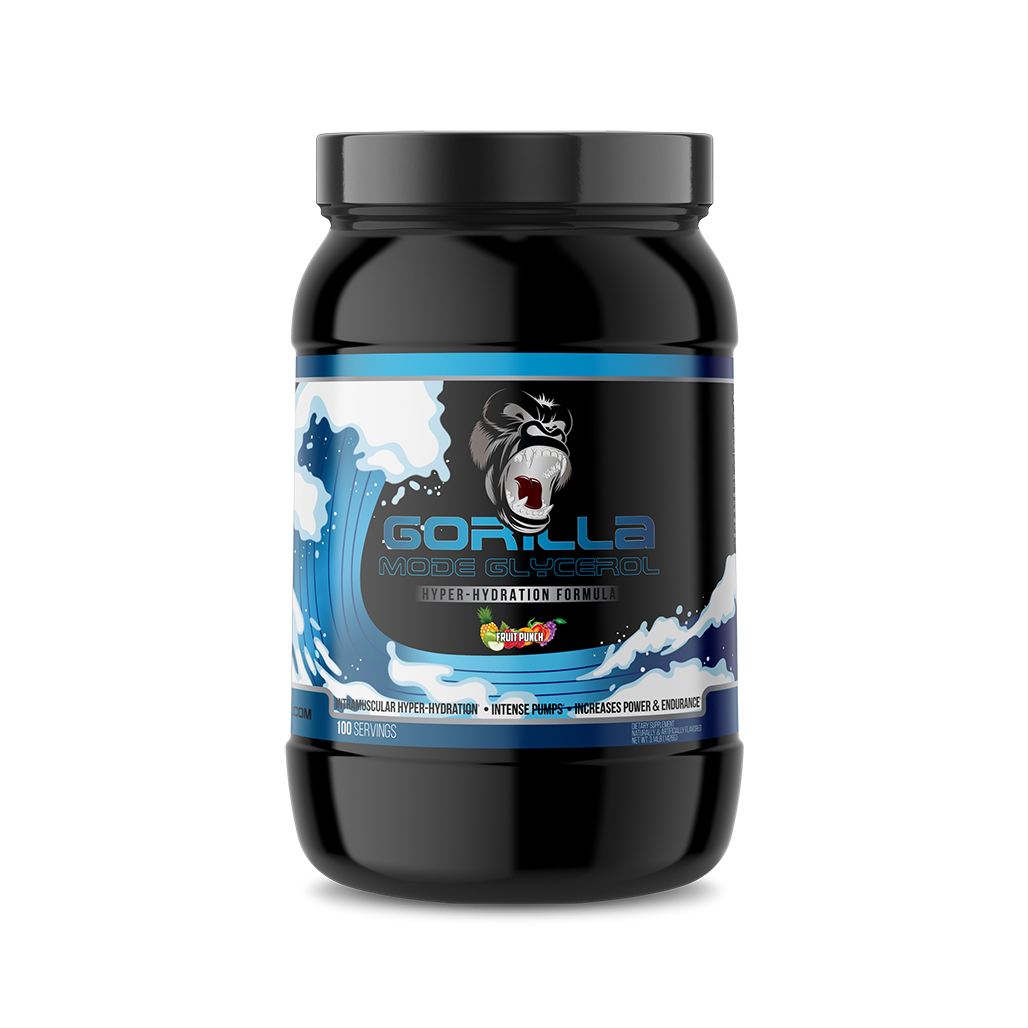
What is Glycerol Monostearate (GMS)
GMS is just Glycerol which is a colorless, odorless, sweet tasting, that is technically a sugar alcohol. Though the distinctions get a bit blurred when it is fundamentally described. It is listed under the FDA as a Carbohydrate, though under the hood its a little more complicated, where carbs are built on simple sugars, GMS is the resulting chemical after triglycerides (fatty acids) are broken down in our bodies. When building Triglycerides it's the simple sugars and glycerol together that forms them.
Though not terribly clear, if you see GMS listed in a food it will be added as a Carbohydrate, despite it behaving differently to one. Generally the calorific value of GMS is fairly negligible so as to be often not listed on products, 100g of it will yield around 42 calories.
What does it do.
So now we have that fairly convoluted description out of the way, lets get downs to brass tax. What does GMS actually do for us.
When ingested orally GMS plays a different role than when it is produced in the body naturally, where GMS is usually used as an energy substrate it instead it rapidly disperses through our bodies [1] before being metabolised in our kidneys and livers. While the GMS has taken up residency in our tissues it raises the osmotic pressure of our bodies, [1] the increase in osmotic pressure creates a state of water retention and hyper hydration when GMS is taken with enough water [2]. We already know from Creatine and TMG that water retention in muscles from a body building perspective can cause increased pumps.
Hydration
We already know that drinking a la lot of water in a short period of time will not induce hyper hydration but instead just cause us to expel the excess. [3] GMS is able to circumnavigate this by its water retention properties, researchers where able to not only induce a state of hyper hydration but able to maintain it for extremely long periods of up to 48 hours [4] with doses of over 100g of GMS. This is very obviously above and beyond what you will need for your 45-90 minute workout, but demonstrates the effectiveness of the ingredient. I will cover the potential benefits of hydration in a gym performance context later in the piece.
Creatine Synergy
Surprisingly, combining Creatine with GMS has an additive effect to water retention and muscle hydration. A study supplementing with both creatine and GMS showed an increase body weight of almost 2lb through water weight. [5] Though the study was done on endurance athletes, the water retention effect can easily be translated into an aesthetic purpose. In musculature pumps the added benefit of it being a vasodilator but through a completely different mechanism than we normally get through NO boosters [6] paves the way to a fuller look.
Body composition
There isn't much here to say other than there is the potential benefit in supplementing GMS during non training days for its hydrating effects. It is well know that being well hydrated allows for normal protein synthesis to occur [7], giving GMS a "pro anabolic" effect, supporting existing functions to perform optimally. Though this is mostly speculation and there is no science backing the idea that staying in a. state of hyper hydration would necessarily be more beneficial for protein synthesis that just being hydrated.
Endurance
This is the meat and potatoes of this supplement and where it really shines, if you're an endurance athlete there is really no reason not to add this into your stack. This study done on 11 well trained individuals where given 1.2g per kg of body weight of GMS before performing cycling to exhaustion. The group who where supplemented had a 21% increase time to exhaustion [8], numbers you cant scoff at! The same study also examined the effect of supplementing intra workout carbohydrates and found an additive effect, extending the exhaustion time by another 15-20%.
In addition to this the same study also showed decreased heart rates against the placebo during the exhaustive exercise. This effect has been supported by other heat tested studies where subjects heart rates where lowered during heat stressing endurance exercise. [9]
Dosing
The studies have shown dosing as high as 1.4g per kg of body weight and have had very little documented side effects from it. That being said the general recommended efficacious dose is 5-10g per day, though really there doesn't seem to be a any exact dosage so it is best to experiment and see what works for you. Given its low toxicity, side effect profile and price I generally like to shoot for 10g.
Side effects
Bottom line
Though extremely effective for endurance style training it is pretty ineffective for strength training/bodybuilding which is area of interest. Apart from of course giving a skin splitting pump which always feels great. For that reason alone I will continue to use it, though don't expect any performance increasing effects from taking it for weight training.
Parting words
Hope you all enjoyed and gleaned something from this write up. As always I hope to clear up a bit of the mysticism surrounding preworkout ingredients and performance enhancing ingredients, so if I didn't address something adequately or left you with a question please don't hesitate to ask.


1 comment
I’m a Reddit Observer, I noticed you stole this whole post from Reddit and didn’t leave a source. So here it is: https://www.reddit.com/r/Neekbod_to_GreekGod/comments/lz2pvw/everything_you_need_to_know_about_glycerol/?utm_source=share&utm_medium=android_app&utm_name=androidcss&utm_term=1&utm_content=share_button